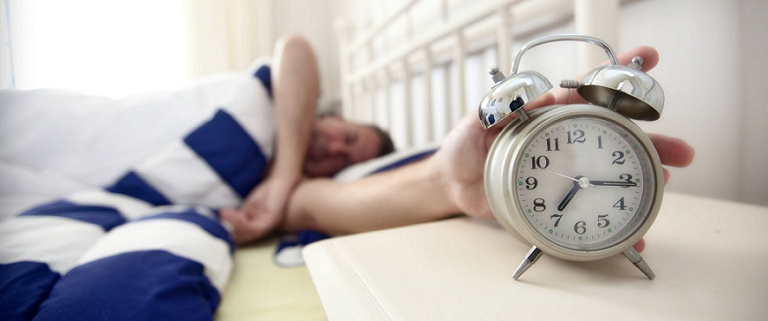Some people do not dream, or at least do not remember their dreams. This can be due to a variety of factors, including certain sleep disorders, medications, and lifestyle factors. However, it is also important to note that not remembering one’s dreams does not necessarily mean that the person is not dreaming.
Why Some People Don’t Dream
Dreaming is a normal part of the sleep cycle and occurs during the Rapid Eye Movement (REM) stage of sleep. However, not everyone has vivid or memorable dreams, and some people may not remember their dreams at all. This can be due to a variety of factors such as sleep disorders like insomnia, certain medications, and lifestyle factors such as alcohol and drug use, stress and lack of sleep. Additionally, some people may have a genetic predisposition for not remembering their dreams.
However, lack of dream recall does not necessarily mean the person is not dreaming. Research suggests that everyone dreams, but not everyone remembers their dreams. Some people may simply have more difficulty recalling their dreams than others.
It’s also important to note that lack of dream recall can be linked to certain sleep disorders such as REM sleep behavior disorder, where people physically act out their dreams while they sleep, and they are less likely to remember their dreams as a result.
REM Sleep Behavior Disorder (RBD) and Lack of Dream Recall
REM sleep behavior disorder (RBD) is a sleep disorder characterized by the loss of muscle atonia during REM sleep, the stage of sleep when most dreaming occurs. This means that people with RBD act out their dreams while they sleep, sometimes resulting in violent movements and vocalizations.
Symptoms of RBD include:
- Acting out of vivid, intense dreams
- Loud vocalizations or talking during sleep
- Kicking and punching movements
- Falling out of bed
- Sleep-related injuries such as bruises, fractures, and lacerations
- Difficulty sleeping through the night
RBD is more common in men than in women and often occurs in middle-aged or older adults. It can be caused by a variety of underlying conditions, such as neurodegenerative disorders such as Parkinson’s disease, or as a side effect of certain medications.
If left untreated, RBD can lead to serious injuries and disrupt sleep quality. Treatment typically involves medication such as Clonazepam, Melatonin or Pregabalin and behavioral changes such as sleeping on a soft surface, or using bedrails to prevent falls.

Why Do Dreams Matter?
Dreams play an important role in the sleep cycle, helping to process memories, emotions, and experiences from the day. They also help the brain to consolidate memories and prepare for the next day.
Research suggests that dreams can help with emotional regulation, allowing people to process and make sense of difficult emotions and experiences. Dreams can also help to problem-solve, and people often report finding solutions to problems in their dreams.
Dreams also play an important role in the process of memory consolidation, which is the process by which the brain organizes and stores new information, making it more easily accessible for future use.
Dreams can also reveal insights about a person’s psychological state, and can be used as a diagnostic tool for certain mental health conditions such as depression, post-traumatic stress disorder (PTSD), and anxiety.
Additionally, some people believe that dreams can be used for self-reflection and personal growth, providing insight into one’s subconscious thoughts and desires.
Overall, while not everyone recalls their dreams, and some people may not find them particularly significant, dreams are an important aspect of the sleep cycle and play an important role in overall well-being.

Is It Bad If a Person Doesn’t Dream?
The absence of dream recall is not necessarily harmful in and of itself, and many people do not recall their dreams. However, it can be a symptom of certain underlying sleep disorders or medical conditions, so it is important to consult with a doctor or sleep specialist if someone is concerned about their lack of dream recall.
Dreams play an important role in the sleep cycle, helping to process memories, emotions and experiences from the day. They also help the brain to consolidate memories and prepare for the next day. So, in general, having healthy sleep and dreaming is important for overall well-being.
It is important to remember that lack of dream recall does not necessarily mean that a person is not dreaming. Research suggests that everyone dreams, but not everyone remembers their dreams. It’s normal for people to have different dream recall ability, some people might remember their dream easily while others may not.

How to Start Remembering Dreams
Here are some tips that may help someone to start remembering their dreams:
- Keep a dream journal: Write down your dreams as soon as you wake up, even if you can only remember fragments. This will help to train your mind to focus on your dreams and make it easier to remember them.
- Get enough sleep: Make sure you are getting enough sleep, as lack of sleep can make it more difficult to remember your dreams.
- Focus on the dream: Before going to sleep, focus on the idea of remembering your dreams. Tell yourself that you will remember your dreams when you wake up.
- Wake up during REM sleep: REM sleep is the stage of sleep when most dreaming occurs. Try setting an alarm to wake up during this stage, as you may be more likely to remember your dreams if you wake up during this stage of sleep.
- Try dream-inducing techniques: Some people find that techniques such as lucid dreaming or dream incubation can help to increase dream recall.
- Avoid alcohol and drugs: Alcohol and drugs can suppress dream recall, so try to avoid them before bed.
- Consult a sleep specialist: If you have a history of sleep disorders or other sleep-related problems, it may be helpful to consult with a sleep specialist for further evaluation and advice.
It’s important to note that these tips may take some time to take effect, and it might take some practice to start remembering dreams. It’s also important to remember that some people may naturally have a harder time remembering their dreams.

